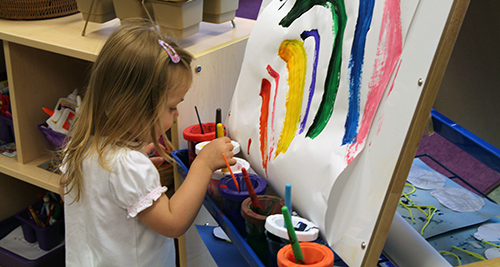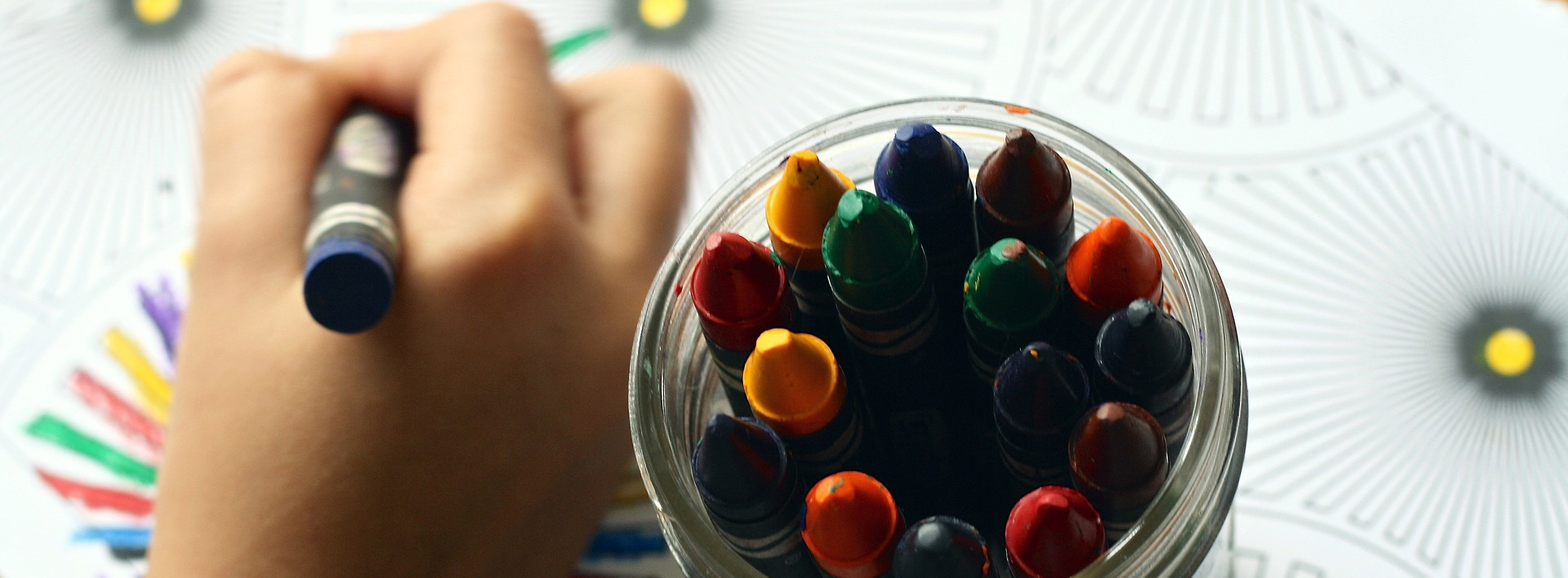What kind of research happens at the ECE Lab Preschool?
Unique, cutting-edge projects help us understand early childhood development, education, problem-solving and more. As a model demonstration site within our community and a training site for undergraduate and graduate students, the preschool's mission is to generate knowledge about best practices in early childhood education.
Take a look at some of our projects.
Parent perspectives on preschool

Parents want the best for their children. We want the best for our students.
The Impact of Video Self-Reflection

Video self-reflection has been documented in the literature as a mechanism for teaching new skills. The purpose of the present study is to provide teachers with a mechanism for structured self-study via video observations of their teaching using the Classroom Assessment Scoring System.
A Shift in Philosophical Approach

The purpose of the proposed study is to gain perspectives of teachers and children on the shift in philosophical approach at the LSU Early Childhood Education Laboratory Preschool. The teachers will be interviewed mid-year and at the end of the year to document their perspective on the philosophical transition.
Full Abstract: Perspectives on a shift in philosophical approach
The Development of Rule-Governed Pro-Social Behavior in Young Children
The purpose of this study is to examine the process by which young children develop
rule-governed behavior, specifically applied to helping behavior.
Full Abstract: The Development of Rule Governed Pro-Social Behavior in Young Children
Establishing Classification Reasoning in Young Children

This study examines the impact of learning experiences on the emergence of hierarchical reasoning in young children. This study is the activity participants would wait for in the rule-governed behavior study (left).
Child-Sustained Attention

The purpose of this study is to determine the mean duration of child attention to a self-selected toy and to determine the longest duration under which teaching condition children attend to toy play (child choice, adult choice, or adult presentation). Two- and three-year-old children will be observed under each teaching condition and data will be collected on the child’s duration of child attention.
Effects of Music on the Time to Quiet Rest

The purpose of this research project is to examine the effects of ambient music on the amount of time it takes preschool children to achieve a quiet resting state at naptime. Results will contribute to a deeper understanding of how music may be used to facilitate naptime in preschool classrooms.

